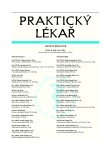-
Medical journals
- Career
Identity of ethics committees, identity of ethicists
Authors: J. Šimek; L. Zamykalová
Authors‘ workplace: Vedoucí: doc. MUDr. Jiří Šimek, CSc. ; Jihočeská univerzita v Českých Budějovicích ; Zdravotně sociální fakulta ; Katedra filosofie a etiky v pomáhajících profesích
Published in: Prakt. Lék. 2009; 89(1): 5-8
Category: Editorial
Overview
Ethics committees became commonly accepted institutions in last years; in spite of this understanding identity of new half-professionals and commissions as institutions develops only gradually under the pressure of external reality. Emphasis is given on multidisciplinarity of both, commissions and their members. From this reason the best term for bioethics is „second order discipline“ and theory of epistemic community seems to be the most suitable. Heterogeneousness in composition of ethics committees as well as in education of their members should not lead to a split and unsolvable conflicts but it should create debate and finally functional consensus.
Key words:
ethics committees; research ethics, identity of ethicists.
Sources
1. Beck, U. Risk society. Towards a new modernity. London: Sage 1992.
2. Davies, H., Wells, F., Druml, C. How can we provide effective training for research ethics committee members? A European assessment. J. Med. Ethics 2008, 34, p. 301-302.
3. Elliott, C. The ethics of bioethics. London Review of Books, Diary 2002 24, 23, p. 40. Dostupnné na http://www.lrb.co.uk/v24/n23/elli02_.html.
4. EFGCP Ethics Working Party: The Procedure for the Ethical Review of Protocols for Clinical research in the European Union: a report on the structure and function of RECs across Europe. International Journal of Pharmaceutical Medicine 2007 21, 1, p. 1-113
5. Fuchs, M. National ethics councils. The backgrounds, functions and modes of operation compared. Berlin: Nationaler Ethikrat 2005. Dostupné na http://www.ethikrat.org.
6. Haas, P.M. (ed.) Introduction: epistemic communities and international policy coordination. International Organization 1992, 46(1), p. 1-35.
7. Hellström, T. Technoscientific expertise and the significance of policy cultures. Technology in Society 2000, 22, p. 499-512.
8. Hendriks, R., Bal, R., Bijker, W.E. Beyond the species barier: The Health Council of The Netherlands, legitimacy, and the making of objectivity. Social Epistemology 2004, 18, 2-3, p. 271-299.
9. Kopelman, L.M. Bioethics as a Second-Order Discipline: Who Is Not a Bioethicist? Journal of Medicine and Philosophy 2006, 31, 1, p. 601-628.
10. Rubin, S., Zoloth, L. Clinical ethics and the road less taken: mapping the future by tracking the past. Journal of Law, Medicine & Ethics 2004, 32, p. 218-225.
11. Salter, B, Jones, M. Regulating human genetics: the changing politics of biotechnology governance in the European Union. Health, Risk and Society 2002, 4(3), p. 325-340.
12. Salter, B, Jones, M. Human genetic technologies, European governance and the politics of bioethics. Nature Reviews Genetics 2002, 3, p. 808-814.
13. Šimek, L, Zamykalová, L., Mesanyová, M. Etické komise v České republice. Prakt. lék. 2008, 88, 1, s. 3-5.
14. Takala, T. Demagogues, firefighters, and window dressers: who are we and what should we be? Cambridge Quarterly of Healthcare Ethics 2005, 14, p. 385-388.
15. Tjeltveit, A.C. Ethics and Values in Psychotherapy. Routledge, London, NY 1999.
16. UNESCO Division of Ethics of Science and Technology: Guide No. 2. Bioethics Committees at Work: Procedures and Policies Committees. UNESCO, Paris, 2005. Dostupné na http://unesdoc.unesco.org/images/0014/001473/147392E.pdf.
17. UNESCO Division of Ethics of Science and Technology: Guide No. 3. Educating Bioethics Committees. UNESCO, Paris, 2007. Dostupné na http://portal.unesco.org/shs/en/ev.php-URL_ ID=11327&URL_DO=DO_TOPIC&URL_SECTION=201.html.
18. Wynne, B. Creating public alienation: Expert cultures of risk and ethics on GMOs. Science as Culture 2001, 10 (4), p. 445-481.
19. Zamykalová, L., Šimek J. Transparentní zodpovědnost (accountability) v medicíně a zodpovědnost etických komisí. Prakt. lék. 2008, 88, 2, s. 67-70.
Labels
General practitioner for children and adolescents General practitioner for adults
Article was published inGeneral Practitioner

2009 Issue 1-
All articles in this issue
- The attitude towards long-term follow-up and coping with stress in patients diagnosed with melanoma
- Globalisation processes and harmonisation of the work of ethics committees in EU
- Chronic wound treatment in old age under supervision of a geriatrician
- Subacute thrombosis of two stents as a cause of acute myocardial infarction
- Estimation of renal function changes on the basis of serum creatinine levels – potential and limitations
- Identity of ethics committees, identity of ethicists
- Vaccination against cervical cancer and other sequelae of human papillomaviruses
- Current possibilities for the treatment of patients with epilepsy.
- Regulatory T cells and their prognostic value for head and neck oncology
- Nutritional care in premature babies after hospital discharge
- General Practitioner
- Journal archive
- Current issue
- Online only
- About the journal
Most read in this issue- Chronic wound treatment in old age under supervision of a geriatrician
- Nutritional care in premature babies after hospital discharge
- Current possibilities for the treatment of patients with epilepsy.
- Subacute thrombosis of two stents as a cause of acute myocardial infarction
Login#ADS_BOTTOM_SCRIPTS#Forgotten passwordEnter the email address that you registered with. We will send you instructions on how to set a new password.
- Career

